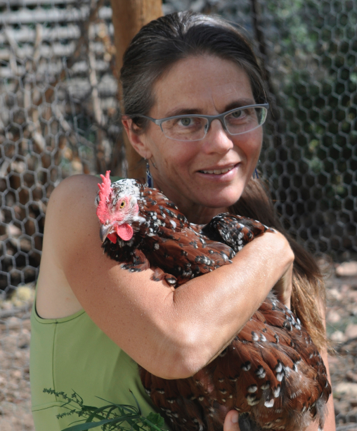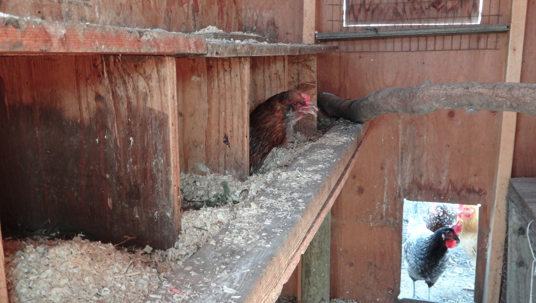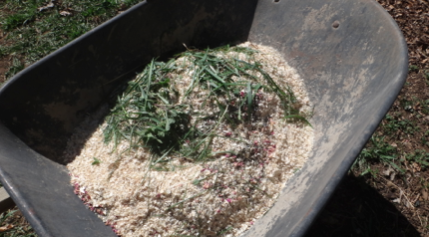Our family has raised chickens for a number of years, but I just learned that chickens can have worms. Yikes! Roundworms, hair worms, tape worms, gapeworms and caecal worms. They live on the ground, and can be transmitted by earthworms and feces. Gross! How do you know if your chickens have worms? Well, that is another blog. I don’t believe ours do, but…
Never fear, there is an herbal solution!
 Catnip, Oregano, Peppermint, Chamomile, Lavender and Grass: add these common backyard herbs to the shavings in the nesting boxes. These herbs are known for their anti-parasitic properties. Oregano is rich in vitamins and minerals such as calcium, magnesium, zinc, iron, potassium, copper, boron, and manganese, which adds to its therapeutic value. Oregano also contains thymol and carvacrol, compounds that discourage the growth of microorganisms, viruses, and parasites. Chamomile is anti-fungal and antibacterial. Peppermint and catnip have strong volatile oils that are repellents. Chickens with access to back yard gardens, will naturally seek these herbs out for their own self care.
Catnip, Oregano, Peppermint, Chamomile, Lavender and Grass: add these common backyard herbs to the shavings in the nesting boxes. These herbs are known for their anti-parasitic properties. Oregano is rich in vitamins and minerals such as calcium, magnesium, zinc, iron, potassium, copper, boron, and manganese, which adds to its therapeutic value. Oregano also contains thymol and carvacrol, compounds that discourage the growth of microorganisms, viruses, and parasites. Chamomile is anti-fungal and antibacterial. Peppermint and catnip have strong volatile oils that are repellents. Chickens with access to back yard gardens, will naturally seek these herbs out for their own self care.
A chicken with a healthy and strong immune system should be able to manage parasites, worms and mites, but if they are skinny, or egg production seems low, you might need to check their droppings or have them tested. Conventional protocol suggests treatment in the spring and in the fall. More frequent treatment is needed in acute situations. Commercial wormers carry the risk of resistance as well as warnings to not eat the eggs for a period of time. If you didn’t want to use Flubenvet (a well known anthelmintic, or wormer), you could consider a best practice that could include some combo of management, diet, herbs and/or breeding for resistance.

Below are ideas to inhibit and discourage worms from embedding in your chicken’s intestine or gut:
Add apple cider vinegar and crushed garlic in their water; use a handful of anti-parasitic herbs like those mentioned above mixed in with the shavings in their nesting boxes, and/or sprinkle Diatom (algae) in their feed. A long time ago, farmers would use dish water, which has lye soap, in their drinking water because it would work to dissolve the protective coating of oil of the parasites allowing the gastric juices to kill them.
 Because our girls have a lot of space and access to the outdoors, our coop is regularly cleaned out, and it is more dry than wet on the ground, it is not likely that we need to actively treat for worms. I would like to think that using herbs in the mint family can keep those worms away while providing us with a fresh smelling coop when we go collect the eggs.
Because our girls have a lot of space and access to the outdoors, our coop is regularly cleaned out, and it is more dry than wet on the ground, it is not likely that we need to actively treat for worms. I would like to think that using herbs in the mint family can keep those worms away while providing us with a fresh smelling coop when we go collect the eggs.
A happy chicken is a dewormed chicken! Who said humans should have all the Blair’s Herbals fun?
Come see me at the Boulder Farmer’s Market – so excited that the 2015 season has begun!!
